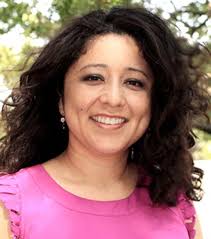
Share On Social!
Latinos are less likely than non-Latino whites to get screened for colorectal cancer, and are more likely to be diagnosed at harder-to-treat stages.
Latino men, specifically, have a 17% lower screening rate than non-Latino men.

That’s why Dr. Cynthia Mojica, a researcher at the Institute for Health Promotion Research at the UT Health Science Center at San Antonio, is creating a cultural- and language-relevant print-based tool to persuade Latino men to get colorectal cancer screening.
Mojica’s efforts are fueled by a new grant from the Health Science Center’s Mentored Research Career Development (KL2) Program in Clinical and Translational Science.
“The grant award will give me training, mentorship and research support to help me bring the community into the research process to help create a tool that can change their behavior and lead them to get screened,” Mojica said.
As part of the award, Mojica will go through training workshops, coursework, professional and programmatic activities, and conferences.
She’ll also have assistance from an experienced mentorship team:
- Dr. Deborah Parra-Medina, a professor at the IHPR at the Health Science Center;
- Dr. Amelie G. Ramirez, professor and director of the IHPR at the Health Science Center;
- Dr. Sally Vernon, professor of behavioral sciences and epidemiology at The University of Texas-Houston School of Public Health;
- Dr. Barbara Turner, professor of medicine at the Health Science Center; and
- Dr. Janna Lesser, associate professor of nursing at the Health Science Center.
For her research, Mojica will: identify and evaluate existing health-decision tools on colorectal cancer screening, such as brochures; convene an expert panel to review the best elements of existing tools; convene focus groups to determine how to tailor a tool for Latino men; and create a new tool that melds the best existing tool elements with cultural and linguistic tailoring to increase Latino men’s screening behaviors.
She will then submit for a larger-scale grant to try out the new tool.
“If successful, this new tool will provide a culturally relevant, language-appropriate tool to convince more Latino men to get screened for colorectal cancer,” Mojica said. “Colorectal cancer screening is clearly not a priority for many men, but it can save lives.”
By The Numbers
25.1
percent
of Latinos remain without health insurance coverage



